World News and Views :: Top of the News
Ecolab to Acquire Nalco for $8.1 Billion
8:41 AM MDT | July 20, 2011 | Natasha Alperowicz
Ecolab has agreed to acquire Nalco for $8.1 billion, in a bid to extend its leading franchise in industrial and institutional cleaning and sanitizing products and services into water treatment. Nalco is the world's leading water treatment company, offering water management services focused on industrial, energy, and institutional market segments with sales of $4.3 billion last year.
Nalco shareholders will have the option to receive 0.7005 shares of Ecolab common stock or $38.80/share in cash subject to proration so that the overall consideration paid to Nalco shareholders will be approximately 70% in Ecolab shares and 30% cash. The stock component of the deal will represent a tax-free exchange, the companies say. Ecolab will issue approximately 68.9 million shares of Ecolab stock and pay approximately $1.6 billion in cash to Nalco shareholders. This represents a fully diluted offer value for Nalco's equity of $5.4 billion plus $2.7 billion in Nalco debt.
The transaction is expected to close in the fourth quarter, subject to closing conditions and regulatory clearance, as well as approval from Ecolab and Nalco shareholders.
The transaction combines Nalco's leading positions in water and energy services with Ecolab's strength in the food and beverage, healthcare, and institutional markets, says J. Erik Fyrwald, Nalco chairman and CEO. "Moreover, this transaction delivers substantial value to our shareholders through an immediate premium to Nalco's share price as well as the opportunity to participate in the upside potential of the combined company," he says.
"Through our participation in the water sector and our strategic planning work, we identified water management as a key future growth segment for us given its growth characteristics and importance to our customers," says Douglas Baker Jr., Ecolab chairman and CEO. "Nalco's water, and oil and gas services and markets in particular represent excellent long-term growth potential as the world deals with the quality, cost, and availability of those key natural resources."
Ecolab has sales of $6 billion/year and employs more than 26,000. It is the global leader in cleaning, sanitizing, food safety, and infection prevention products and services. Nalco is focused on industrial water, energy, and air applications. The company employs 12,000. Ecolab would be the latest in a succession of owners of Nalco in recent years. The company was acquired by Suez of France in 1999, followed by a buyout consortium comprising Blackstone, Apollo Management, and Goldman Sachs. Nalco returned to public ownership in 2004.
miércoles, 20 de julio de 2011
ECOLAB'S NEW MOVE
Suscribirse a:
Enviar comentarios (Atom)
Vistas de página en total
GREEN CHEMICALS
The Green Seal certification is granted by the organization with that name and has a great number of members contributing with the requirements to pass a raw material or a chemical product as "green". Generally for a material to be green, has to comply with a series of characteristics like: near neutral pH, low volatility, non combustible, non toxic to aquatic life, be biodegradable as measured by oxygen demand in accordance with the OECD definition.
Also the materials have to meet with toxicity and health requirements regarding inhalation, dermal and eye contact. There is also a specific list of materials that are prohibited or restricted from formulations, like ozone-depleting compounds and alkylphenol ethoxylates amongst others. Please go to http://www.greenseal.com/ for complete information on their requirements.
For information on current issues regarding green chemicals, see the blog from the Journalist Doris De Guzman, in the ICIS at: http://www.icis.com/blogs/green-chemicals/.
Certification is an important — and confusing — aspect of green cleaning. Third-party certification is available for products that meet standards set by Green Seal, EcoLogo, Energy Star, the Carpet & Rug Institute and others.
Manufacturers can also hire independent labs to determine whether a product is environmentally preferable and then place the manufacturer’s own eco-logo on the product; this is called self-certification. Finally, some manufacturers label a product with words like “sustainable,” “green,” or “earth friendly” without any third-party verification.
“The fact that there is not a single authoritative standard to go by adds to the confusion,” says Steven L. Mack M.Ed., director of buildings and grounds service for Ohio University, Athens, Ohio.
In www.happi.com of June 2008 edition, there is a report of Natural formulating markets that also emphasises the fact that registration of "green formulas" is very confused at present, due to lack of direction and unification of criteria and that some governmental instittion (in my opinion the EPA) should take part in this very important issue.
Also the materials have to meet with toxicity and health requirements regarding inhalation, dermal and eye contact. There is also a specific list of materials that are prohibited or restricted from formulations, like ozone-depleting compounds and alkylphenol ethoxylates amongst others. Please go to http://www.greenseal.com/ for complete information on their requirements.
For information on current issues regarding green chemicals, see the blog from the Journalist Doris De Guzman, in the ICIS at: http://www.icis.com/blogs/green-chemicals/.
Certification is an important — and confusing — aspect of green cleaning. Third-party certification is available for products that meet standards set by Green Seal, EcoLogo, Energy Star, the Carpet & Rug Institute and others.
Manufacturers can also hire independent labs to determine whether a product is environmentally preferable and then place the manufacturer’s own eco-logo on the product; this is called self-certification. Finally, some manufacturers label a product with words like “sustainable,” “green,” or “earth friendly” without any third-party verification.
“The fact that there is not a single authoritative standard to go by adds to the confusion,” says Steven L. Mack M.Ed., director of buildings and grounds service for Ohio University, Athens, Ohio.
In www.happi.com of June 2008 edition, there is a report of Natural formulating markets that also emphasises the fact that registration of "green formulas" is very confused at present, due to lack of direction and unification of criteria and that some governmental instittion (in my opinion the EPA) should take part in this very important issue.








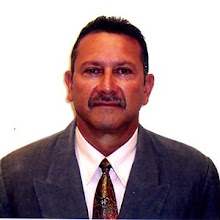




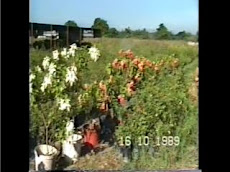
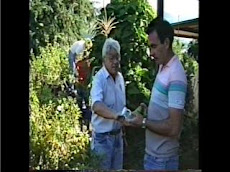













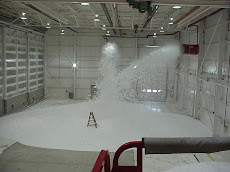
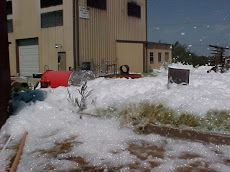

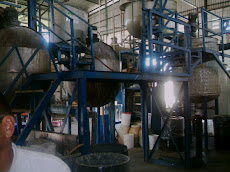








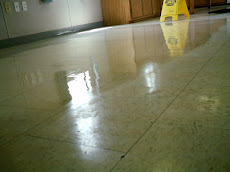








No hay comentarios:
Publicar un comentario